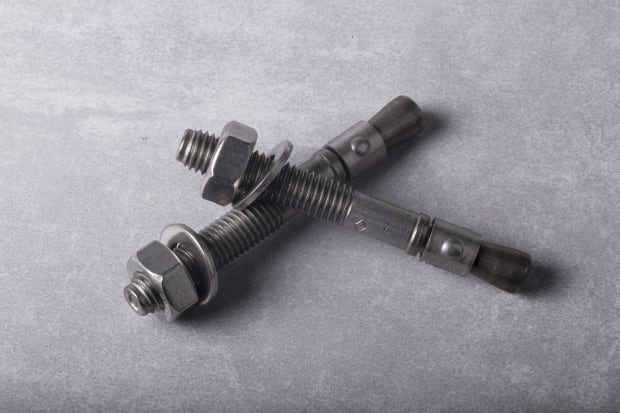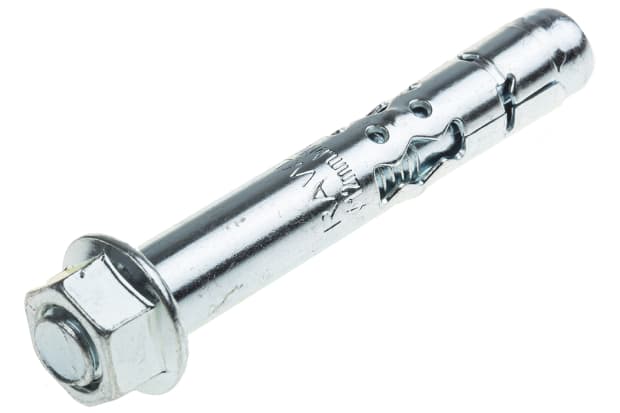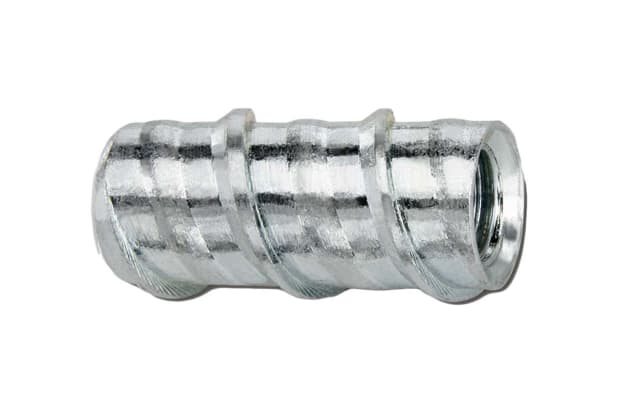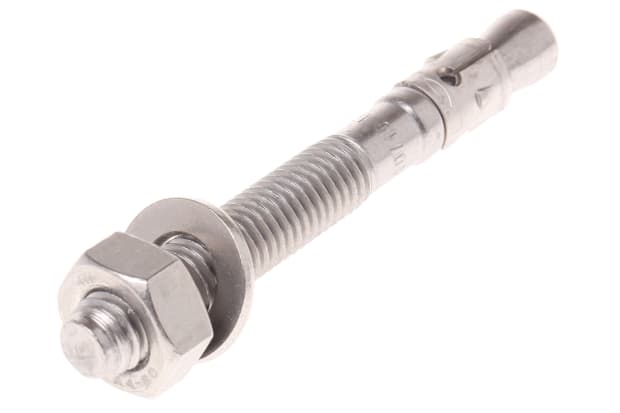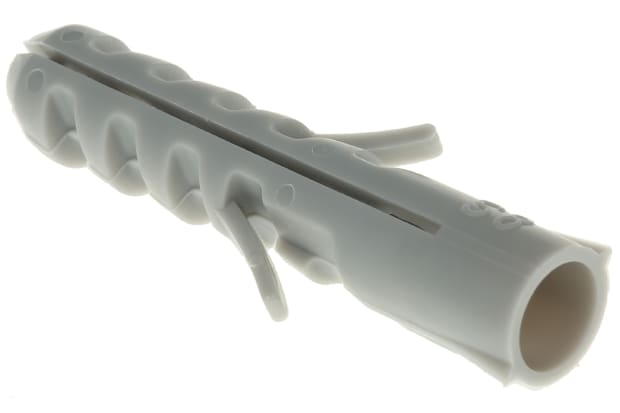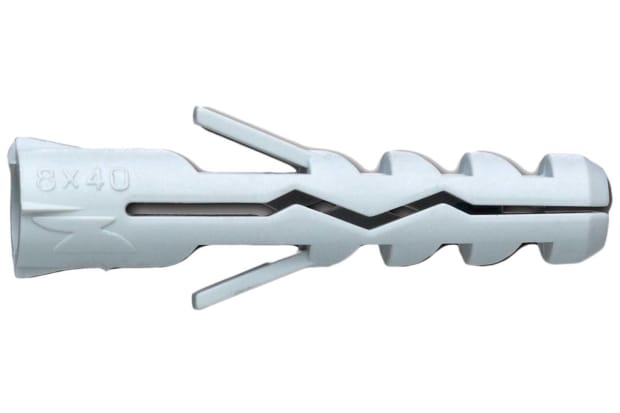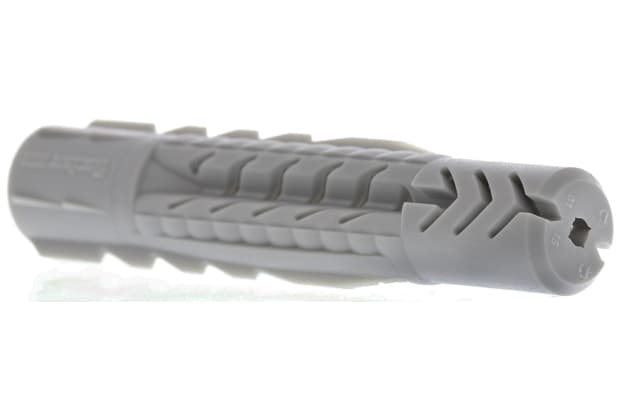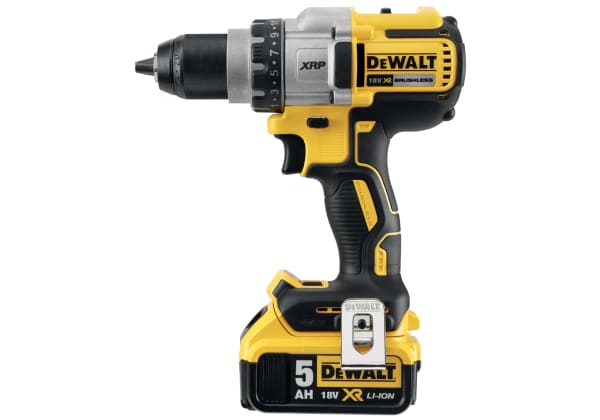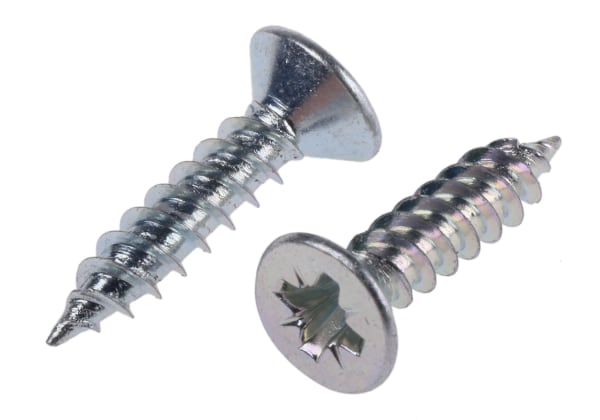- Published 23 Jan 2023
- Last Modified 29 Aug 2023
- 8 min
A Complete Guide to Masonry Anchors
Our guide looks at what masonry anchors are, what they are used for, and the different types available.

What is Masonry?
Before we explain what masonry anchors are, we must first define masonry itself. In its simplest form, masonry can be described as anything that a mason puts down. In other words, if it is laid by a stonemason or a bricklayer, then it is masonry. This can include building materials such as stone and brick, as well as block walls.
Blockwork walls are made from blocks that are commonly known as breeze block, Thermalite block, concrete blocks, or cinder block. Blocks are typically much quicker to lay than brick, so they are often used for the interior walls of modern houses. The walls are then covered with plaster or plasterboard to provide a smooth finish.
What are Masonry Anchors?
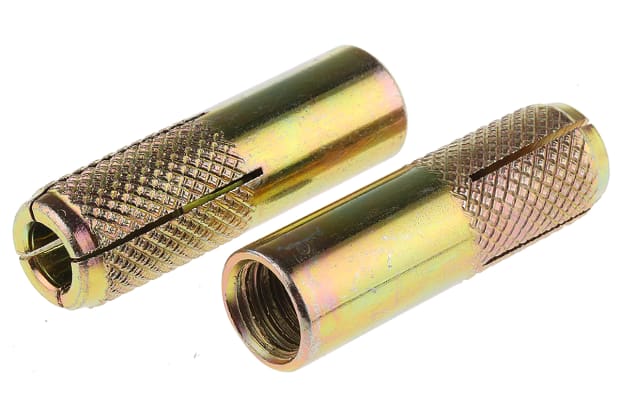
So, considering that, anchors for masonry are simply fixings used to fasten or attach an item to masonry. Strong and durable, they are designed for reliability and to provide a secure hold.
Traditionally, screws are used to fix items to masonry, but this method has its limitations with certain materials. It is not possible to screw directly into brick, stone, or block walls – hence the need for specialist masonry anchors.
Plastic wall plugs and masonry anchors can help to achieve a secure fitting when fixing items to walls. They work by expanding against the hole you have drilled in the masonry, as the screw is screwed into the wall. This creates a highly secure and tight-fitting hold on the screw – providing that the wall is made from solid masonry or concrete.
What are Masonry Anchors Used for?
Masonry fixings are anchors used to fasten or attach an item to masonry. They can be used with various kinds of masonry including brick and blocks, as well as concrete.
Using masonry plugs on different building materials is explored in further detail below:
Brick and Masonry
Masonry anchors designed for use with brick and similar materials are some of the most widely used types available. These fasteners are designed to attach items to bricks or mortar joints in walls, providing a secure anchoring solution. As brick contains hollow areas, masonry anchors for brick are specially designed to provide a secure hold in both the solid and hollow parts of the brick wall.
Concrete
Although concrete is not a form of masonry, similar fixings are typically used with concrete, brick, stone, and masonry. As concrete is a tough material to drill into, specialist concrete fixings and screws are recommended to achieve a good result with relative ease. Concrete fixings can be used for light and medium-duty applications - some heavy-duty concrete anchor types are available but are less common – and for a variety of purposes ranging from connecting structural elements to attaching wall hangings.
Popular Brands
RS Pro
RS Pro, our own in-house brand, offers an extensive range of high-quality masonry anchors suitable for a variety of applications.
RawlPlug
With a wide range of types and sizes available, browse RawlPlug masonry anchors online with RS.
DeWALT
Leading brand DeWALT offers a range of masonry anchors, concrete screws, wall plugs and more. Explore the full range today.
Fischer Fixings
Browse Fischer Fixings' complete range of masonry anchors and related products and shop online with RS.
How Do Masonry Anchors Work?
Anchors for masonry work in a fairly simple way. Their purpose is to provide a secure, reliable fixing between the masonry and the item being attached. In essence, they work similarly to many other common types of wall fastening.
The steps below outline the basics of how a masonry anchor works:
- A hole must be drilled to the size recommended by the masonry anchor manufacturer
- Next, the anchor is tapped into the hole using a hammer
- The screw or bolt is tightened
- This will expand the anchor, gripping and wedging to the side of the hole to provide a solid hold
How Do Concrete Anchor Bolts Work?
Although the basic principles are similar, working with concrete anchors requires a slightly different process, as detailed below:
- Drill a hole in the concrete
- Insert the anchor into the hole
- Expand the anchor with the use of a screw, nail, or setting tool
The precise method needed for expanding will depend on the type of concrete fastener being used:
- Wedge Anchors: Once the threads are inserted into the hole and are below the surface, the nut and washer must be placed on them and tightened. Use a wrench to turn the nut, pulling the anchor up and wedging it for a secure hold
- Sleeve Anchors: Insert the sleeve anchor into the concrete then turn the nut to pull the stud upwards and through the expander sleeve, securing the anchor in place
Of course, many additional types of concrete anchors are available, so always make sure to refer to the specific guidelines for the type of fastener you have before use.
Types of Masonry Anchors
Different types of anchors for masonry are available, each with its own strengths, weaknesses, and best-suited applications and materials.
Some of the most common masonry anchor types include:
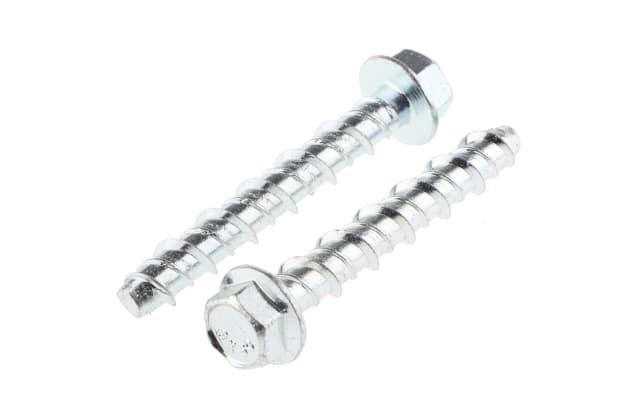
Anchor Bolts
These are all-purpose anchors designed to be used in medium-weight applications with materials including brick, block, and hard masonry. Some variations can also be used with concrete. Anchor bolts are typically made from zinc-plated steel for strength and longevity.
Anchor bolts can be used to fix both structural and non-structural components, making them highly adaptable and versatile fasteners. These fixings also come in a wide range of different sizes for ease of use in multiple applications.
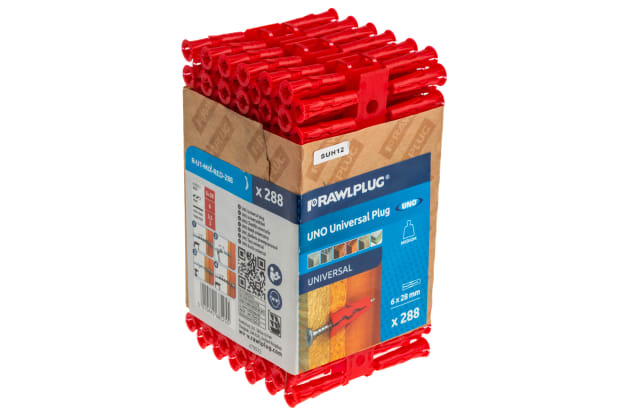
Wall Plugs
Commonly used for attaching light and medium-weight items to solid and cavity walls, floors, and ceilings, wall plugs are a popular choice. Wall plugs are typically used for applications including fixing shelves and attaching cabinets to walls. Their versatility means that they are suitable for use with a wide range of materials, such as plywood, brick, plasterboard, block, stone, and concrete.
Wall plugs are designed to expand into the wall immediately, providing a secure grip in a range of materials. They also can’t be over-tightened, and they feature anti-rotation fins to prevent the plug from spinning in the hole. However, perhaps the biggest advantage of wall plugs is that they are universal. This universal application is highly beneficial as it avoids the need to invest in separate plugs for different materials and wall types.
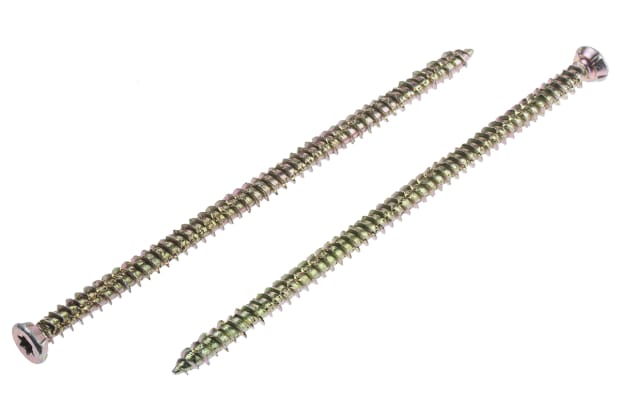
Concrete Screws
Concrete screws are specially designed for working with concrete. These screws are manufactured to enable the thread of the screw to tap into harder materials, making them ideally suited to tougher masonry applications. The thread of a concrete screw is hardened during the manufacturing process, but crucially without making the body of the screw too brittle. Otherwise, this could result in breakage or the screw shearing off.
These screws typically feature a corrosion-resistant coating to protect the concrete screw. The thread has been designed and optimised for lower installation torque, making installation much more straightforward. Concrete screws are ideal for use on light and medium-duty applications. Aside from concrete, they can also be used with materials including chipboard, gypsum block, wood, and gypsum board.
Masonry Wall Plug Sizes
Wall plugs come in an extensive range of sizes, ranging from small plugs for precise, light-duty applications, to much larger, heavy-duty models. It is also important to match the wall plug, screw size, and masonry drill bit in order to ensure each component is the correct size and the installation process goes smoothly.
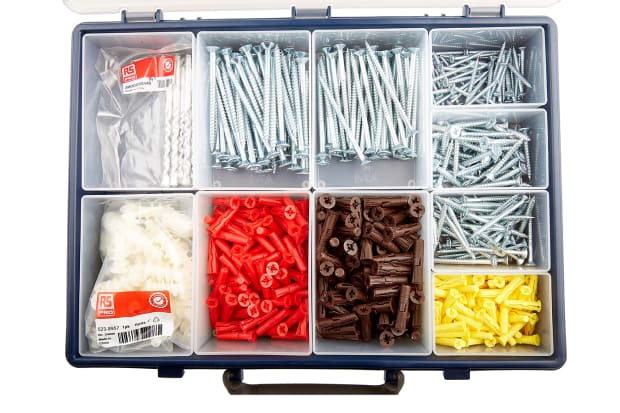
Masonry Fixing Kits
Masonry fixing kits are also available. These make a great investment if you are unsure of the specific type or size you need for a particular project. They are also ideal for masons and professionals who regularly use masonry anchors in day-to-day applications through the course of their work.
These kits typically contain a wide variety of essentials such as wall plugs, screw plugs, drill bits, and wood screws. They also feature products in a range of different sizes, making it easy to select the best product for the task at hand.
How to Use Masonry Anchors
Masonry anchors are relatively straightforward to use, but it is still important to exercise caution and observe good practise to stay safe and ensure the job is completed to the highest possible standards.
The following steps should prove to be helpful guidance for using and installing wedge or sleeve masonry anchors:
- Firstly, position the material you want to anchor
- Drill a hole in the masonry behind the bolt holes
- Ensure the hole is the specified diameter – at least a quarter of an inch deeper than the length of the anchor
- Insert the anchor into the hole
Once the anchor has been successfully inserted into the hole, the installation process is complete!
Related Guides
Related links
- Masonry Bolts & Anchors
- Guide to Wall Plugs
- Plasterboard & Cavity Wall Fixings
- RawlPlug Steel Masonry Anchor M12 x 105mm, 20mm Fixing Hole
- RawlPlug Steel Anchor Bolt M10 x 70mm, 12mm Fixing Hole
- RawlPlug Steel Masonry Anchor M8 x 65mm, 14mm Fixing Hole
- RawlPlug Steel Wall Plug 16mm x 140mm, 16mm Fixing Hole
- RS PRO Steel Drop In Anchor M12 x 50mm, 15mm Fixing Hole
